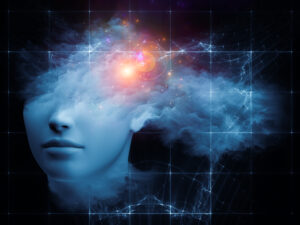 Calm, relaxed, restless, anxious, envious, confident, unsure, loving, guilty, grateful. As my thoughts drifted, these are some of the emotions I felt just in the past hour. And these are only the ones I was aware of. Striving to be more self-aware, I try to be in touch with my thoughts and emotions as often as possible. Hoping to have a better understanding of my tendencies, so I can slowly reform them to a healthier state.
Calm, relaxed, restless, anxious, envious, confident, unsure, loving, guilty, grateful. As my thoughts drifted, these are some of the emotions I felt just in the past hour. And these are only the ones I was aware of. Striving to be more self-aware, I try to be in touch with my thoughts and emotions as often as possible. Hoping to have a better understanding of my tendencies, so I can slowly reform them to a healthier state.
However, a sudden insight recently offered a breakthrough in this practice. It’s about grasping the distinction between who’s feeling these changing emotional states and who’s observing them within. Who’s doing the thinking and who’s being aware of the thoughts? Who’s busy with the ongoing self-talk and who’s doing the listening? For all these questions, the answer is the mind and the Awareness respectively.
This Awareness, that allows me to observe my thoughts and feelings, is our true self. It is the mirror that makes our ever-changing thoughts and emotions visible to us. It is the screen on which we project our emotional and mental drama. However, since this projection is continuous and we are so engrossed in it, we believe we are the movie and totally miss the screen. We identify with our job, family, friends, religion, nation etc. However, this unwavering Awareness, that makes such identification possible, is the real us.
Three levels of consciousness
We can have three levels of consciousness. Level one is the outer (or body) consciousness. Our consciousness is limited to what we perceive through our sensory organs – what we see, hear, smell, taste and touch. At this level, we react to outer experiences on autopilot. If we eat a tasty snack, we crave for more and overeat. Someone cuts our lane on a busy street and we get angry at them.
Level two is the inner (or emotional/mental) consciousness. Here we are aware of our thoughts, feelings, motivations, attitudes and preferences. We are in touch with our inner craving for that snack. Also, we are aware of the anger as it arises within us seeing someone cut our lane. At this level of consciousness, if we choose to, we can work with examining our inner states- craving or anger- and slowly shift our attitude and beliefs so we don’t automatically lose temper or overeat. (Read: To create a new reality, start with your beliefs)
Level three is the self (or spiritual) consciousness. We develop awareness of our true self – the one that’s observing our anger or our craving for a tasty snack. At this level, you recognise that you are not your body, mind, senses or emotions. You are simply the Awareness that’s experiencing these aspects in a human form.
Why level three is a game changer
Level three consciousness has the potential to be liberating. The biggest source of our unhappiness is our attachment to our body, mind and identity. As different events affect our body (pain and disease), our mind (fear, anxiety, anger) and identity (rejection, failure), we suffer. However, if we could somehow live in the consciousness of our enduring true self, we would not as easily identify with the ups and downs of our human experience. We could better see the transient nature of all our physical and emotional experiences. (Read: Dissolve your ego)
Being in this state doesn’t mean we become less capable of fulfilling our various roles in life. Instead, grounded in our connection with our true self, we can fulfil them with a greater sense of stillness and joy. It would be like the theatre actor who plays his role with great commitment, knowing all along that he is actually not the character he is playing.
Besides, when we are aware of our unchanging true self, by extension, we can relate to everyone else the same way. We recognise that our partner’s, colleague’s or child’s personality may differ from us, but their essence is the same. This knowledge can help us be less judgmental and offer unconditional love in all our relationships. (Read: Unconditional love)











 Discover Your IKIGAI, Create A Life
Discover Your IKIGAI, Create A Life Insightful Lessons From Our Body’s Innate Wisdom
Insightful Lessons From Our Body’s Innate Wisdom The Olympics, Transcending Ourselves, and Personal Mastery
The Olympics, Transcending Ourselves, and Personal Mastery Was Focused on Moderating Greed, Until I Discovered Aversion
Was Focused on Moderating Greed, Until I Discovered Aversion What It Takes To Be The Adult In The Room
What It Takes To Be The Adult In The Room
Great article Rajiv. This is also the essence of Bhagvad Gita. Cause of our sufferings is our association with our gross and subtle bodies. Once we discover our true self as ever existent, immutable pure consciousness then there is no reason to be unhappy. However, this is easier said than done and only a path of a steady spiritual practice would help us reach that state. best,
Hi Alok, great to hear from you. Hope you’ve been well. Thanks for sharing your thoughts. I totally agree, it’s easier said than done and yes we need a steady spiritual practice to experience this on a sustained basis. Hope we can try to stay connected with these ideas as often as possible. Take care!
Great article as always . My question is does level three consciousness hinder our ambition/ passion for a role we play especially in our careers ?
Equanimity and ambitious goals feel counterintuitive .
Great question Smita, thank you for asking! It can seem that way (that ambition and equanimity are opposing states and we can only be in any one of them) and sometimes our experience can reinforce that too. However, there is an opportunity for an optimal balance between the two (what I call the sweet spot in my book) where the paradoxical opposites come together in a healthy way. From a practical point of view, I would say simply pursuing ambition, without a sense of stillness within, will never be fulfilling. All the same, being still without being fully engaged in our pursuits can lead to frustration of not accomplishing our goals. The ideal scenario would be to pursuing our goals with passion, without being attached to the outcomes (being at peace and content in the knowledge that we did our best and that results are not always in our control).
Hi Rajiv ji,
I have always loved reading your articles.
Understanding to be aware is easy but to be constantly in touch with it is the task we need to do.
Would love to hear your input on how to work with this aspect and never be reactive, so basically concentrating on the action and not getting caught in the chains of reaction.
Thanks
Hello Anju, thank you for your kind comment and question. I fully agree – there’s a big difference between knowing and being. Based on my experience, here are a few different suggestions you may like to consider (see if any of these are supportive for you):
– Become more aware of your recurring patterns of thoughts and emotions – what makes you happy, sad, anxious, envious, angry, energised etc. Ideally, record the patterns somewhere or write a journal. Simply being more self-aware will program to body-mind to slowly start responding to areas you want to change
– For situations you routinely find disturbing or stressful, explore the underlying personal beliefs that cause you to think or act in a certain predetermined way in those situations. Consider alternate beliefs that maybe more relevant in those situations and try to embrace those. Read: To create a new reality, start with your beliefs
– Start prioritising ‘being’ over ‘doing’: Rather than stay focused on what you need to do (our usual checklist), reflect on the kind of person you want to be (kind, generous, mindful, courageous etc.) and from time to time review how you are tracking against that. Read: Doing versus being
– Practice visualisation or affirmation, by visualising yourself being the way you would like to be in those recurring situations…so your body and mind are preprogrammed to behave in a healthier way
– Create a regular practice of mindfulness or any other form of meditation. This can help you to be more present. It can slow down the pace of thoughts, allowing for more clarity (including on the above two points) and enhance the tendency to respond (rather than react on autopilot)
Hope this helps!
Amazing suggestions. Very simple and practical. Thanks Rajiv
Excellent article Rajiv, it covers the essence of entire spiritual knowledge, i was feeling the presence of all the 3 levels of consciousness…., will practice to stay with level 3 as much as possible. Thanks for sharing it..
Many thanks Kapil, all the very best in your practice!
Dear Rajiv,
It is always a pleasure to read your blogs. Simple yet profound. I was reminded of a simple answer that my Guru gave to your question which goes as
You are not one but three
1. The one you think you are – Body
2. The one others think you are – Mind
3. The one you really are – Awareness as you put it or Atma or whatever else one calls it.
Regards
Thanks Sai, interesting way to capture the three aspects, thanks for sharing!
As a doctor, the division is three fold, while conscious and unconscious are easily explainable, the subconscious is tricky. It can be something which is part of the mind, that is not currently in the focal awareness. As often we use this, “oh this was in my subconscious mind”. Subconscious has different connotations in the field of psychology, psychiatry and medicine. Spiritual aspects are all together different
The article is well appreciated and understood.
Very nicely explained. We often go through these levels of consciousness, though in varying proportions. I want to know whether if it is always good to go through all the three levels of consciousness with every or most of our experiences ? Also is there is an optimal proportion for each level of consciousness that maintains a near perfect balance between the three levels?
Hi Vineet, thanks. Unfortunately, we are rarely in the third level of consciousness. Most of us are in the first two levels, with the first level being more dominant and the third level almost non-existent. The ideal goal would be to be totally at the third level of consciousness (aware of our awareness) while simultaneously conducting our lives that require the first two. However, that’s clearly a lofty goal. For starters, if we can create a disciplined practice of connecting with the third level for at least some time every day, we would already be making tremendous progress in our spiritual growth. Kind regards!
Hi Rajiv,
Wonderful thoughts, succinctly and simply put.
A question – can being in level 3 at times lead to a “holier than thou” attitude in interactions, which can be picked up by others in either words or manner? Kind of a master player at chess. If so, how can one avoid that?
Thanks
Hi Alka, good to hear from you, thank you for your comments. I can relate to your question. As we spin in and out of level 3, we remain inward focused and have to make an effort to stay there- with that, we can come across as distant and disinterested. We can also make the mistake of thinking better about ourselves as we feel more ‘aware’. However, I would like to believe that those who are well established in their practice, can perhaps engage with everyone around them in a normal way. One, because they realise that we are essentially all the same in our true self (we are just going through different human experiences) and second, because their consciousness of the third level is so high that it’s effortless.
I have tried to be self aware through meditation and making a list of do and don’t behaviours. Still at times your personality comes into play. One thing which has helped me so far is telling yourself to speak less instead of instant reaction. This allows you time to observe and re think what are you doing.